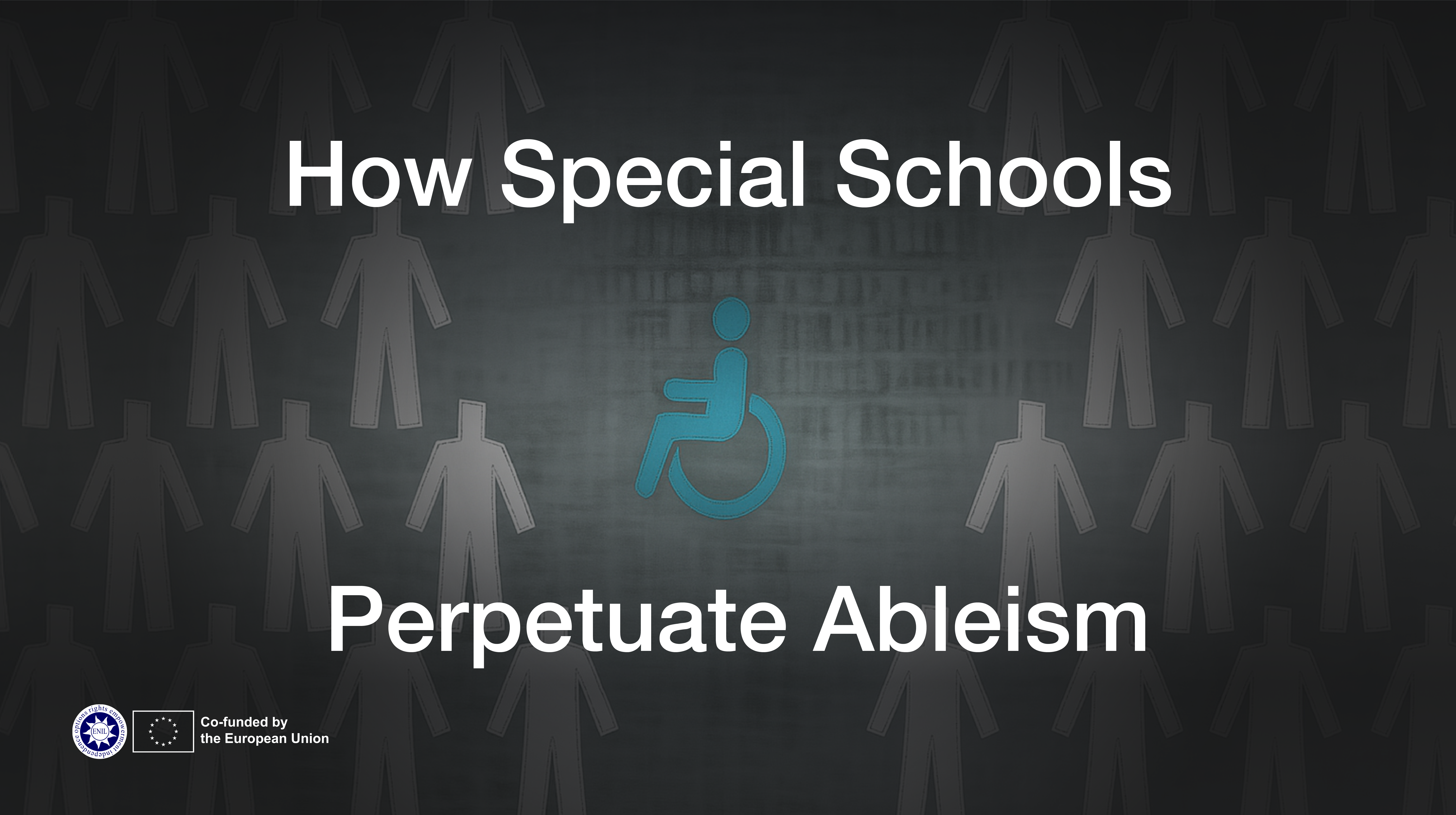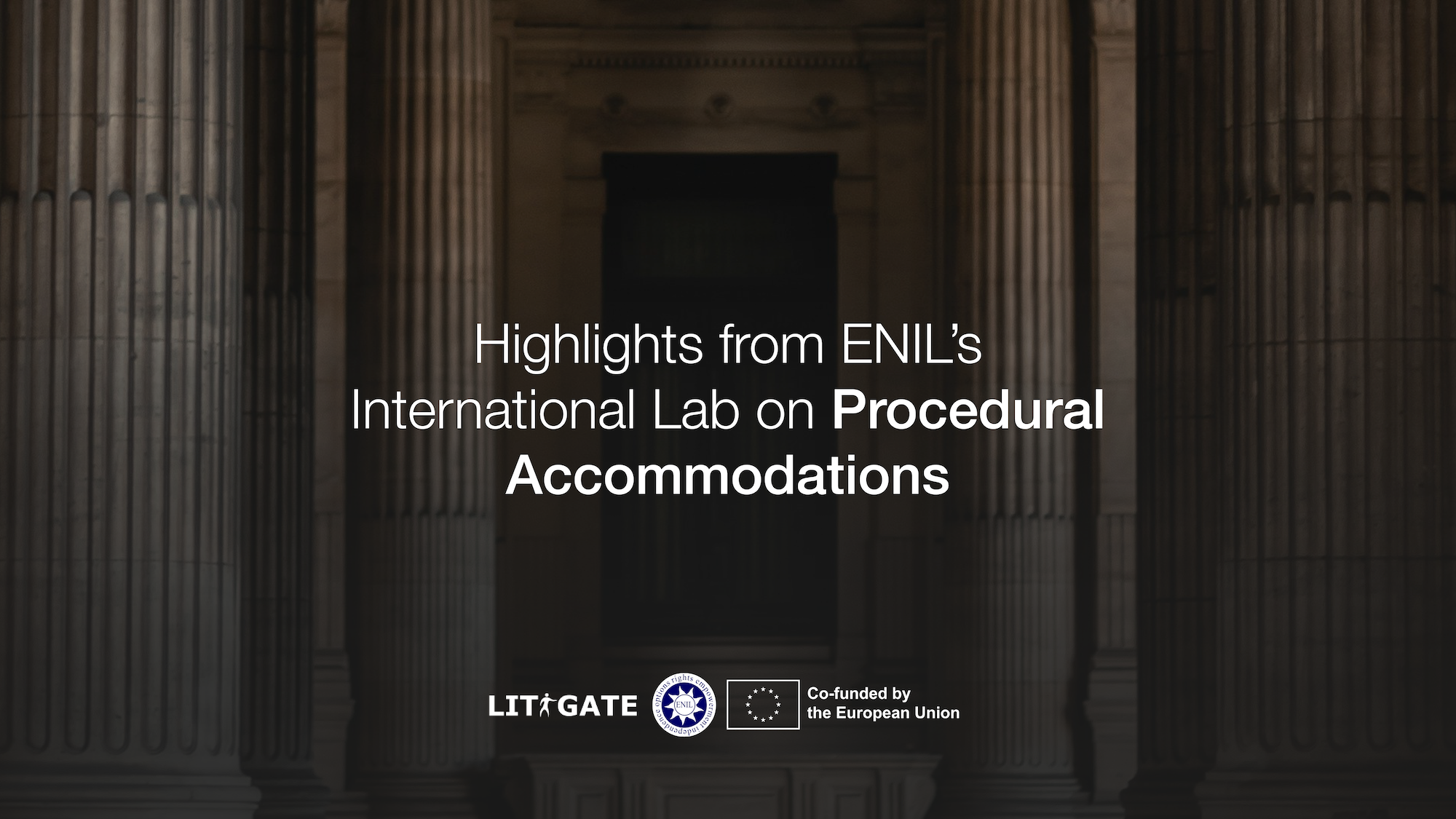Independent Living can mean different things to different people. As defined by the UN Convention on the Rights of Persons with Disabilities (UN CRPD), it means that disabled people can exercise choice and control over their lives, that they are able to take all decisions and exercise personal autonomy and self-determination. Independent Living means disabled people must have access to all areas of life.
This document brings together key recommendations by the European Network on Independent Living – ENIL on how to improve access to living in the European Union (EU). We believe that these recommendations should be included in the European Commission’s guidance on Independent Living, because they are based on the lived experience of disabled people and the countries’ obligations under the UN CRPD, the General Comments and the CRPD Committee’s Guidelines on deinstitutionalisation, including in Emergencies.
This is the summary of our recommendations:
- Definitions of the terms ‘independent living’, ‘institution’, ‘deinstitutionalisation’ and other must be aligned with the UN CRPD and its General Comments, and included in all the relevant laws, policies and strategies.
- To make progress on deinstitutionalisation, EU Member States must repeal legislation which authorises the use of institutions, including involuntary detention and forced treatment based on disability, guardianship and institutionalised forms of “community care” (for example, ‘community treatment orders’). They must also invest more financial resources into personal assistance and other community-based services, and stop funding institutions of any size.
- Personal assistance schemes need to be aligned with the General Comment 5 definition on personal assistance. For example, disabled people using personal assistance must be able to freely choose, hire, train, instruct and dismiss their assistants. Eligibility and needs assessment procedures need to be fair and transparent, and the personal assistance schemes adequately funded. Disabled people in residential settings need to receive active support in applying for personal assistance, so that they can move to the community.
- A broad range of community-based services must be available, including those aimed at people moving from institutions to the community, and to prevent institutionalisation. This includes better access to assistive devices and fairer and more transparent disability assessment procedures.
- To ensure disabled people can live in the community, Member States must ensure access to affordable and accessible housing options, including support with renting, social housing and challenging discrimination in access to housing.
- All disabled people must enjoy the right to inclusive education where they live. Member States must accelerate their efforts to implement the steps set out in the General Comment 4 and ensure that their education systems are available, accessible, acceptable and adaptable.
- When it comes to employment, effective legislation is needed, banning direct and indirect discrimination, denial of reasonable accommodation, harassment and discrimination by association. Employers should launch affirmation action programs and receive training on including disabled people in the workplace.
- To improve access to healthcare, Member States should improve access to primary, secondary and other healthcare, including by making healthcare facilities and medical equipment accessible. Member States also need to take steps to improve timely access to mental health support of high quality, in the community, for people with psycho-social disabilities who wish to use it, while at the same time developing a range of other options. Any treatment must be strictly voluntary and focus on individual support needs.
- For independent living to become a reality for disabled people, there must be a change in how society views us. This includes raising awareness among everyone, including disabled people, about the social and/or the human rights model of disability. Disability assessment procedures must be reformed to ensure that all those who need support are able to access it. An intersectional and intersectoral approach is needed, to make sure that no one is excluded.
- Disabled people and their representative organisations must be involved in any processes that concern them, including in leadership positions and as equal partners, through co-production.



